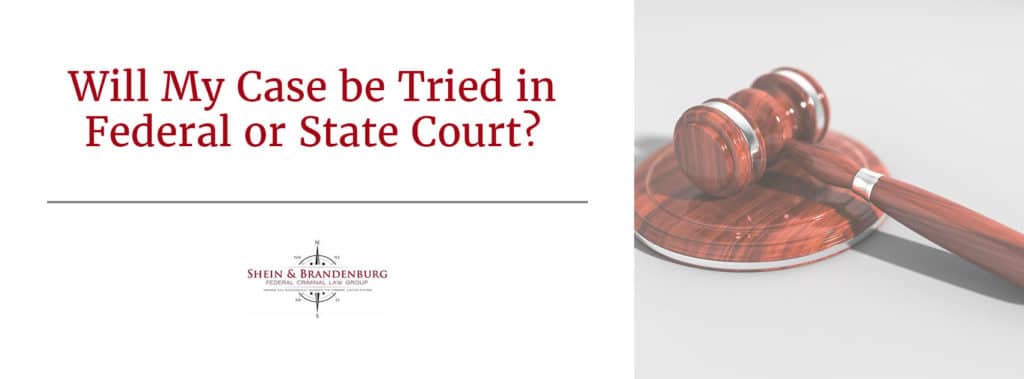There are two kinds of courts that hear criminal cases – state courts and federal courts. While there is a great deal of variation between state and federal courts, federal courts are required to hear certain types of cases regardless of the state in which they are located. This article will discuss some of the differences between federal and state courts so that individuals convicted of federal crimes will understand how matters will proceed.
Federal Courts Hear Certain Types of Crimes
Federal courts are limited in the amount of cases that they hear. Federal courts were established as a result of the United States Constitution and hear criminal cases regarding violations of federal crimes. Some of the issues that are heard by federal courts including cases involving violations of the Constitution or federal laws and cases in which the United States is a party. Some of the cases that involve federal crimes include bringing illegal drugs into the country, crimes committed on federal property, or using mail services in a criminal way. Federal courts can also sometimes hear cases concerning violations of state laws provided that the state law violates the federal constitution.
Cases involving crimes that violate federal laws can only be heard in federal court. As a result, there are a large number of criminal cases that are frequently not heard by state courts. Other crimes are illegal under both federal and state laws which allow both federal or state governments to prosecute an individual. One other element that can result in a case being treated as a federal rather than state case is when a crime impacts interstate commerce. Congress is granted the authority to regulate interstate commerce, which includes criminal activity that has a substantial impact on business that occurs between states.
What the Court Procedure is Like for a Person Charged with a Federal Crime
For individuals who are likely to face a crime in federal court, it is important to understand what some of the critical differences are between state and federal criminal prosecutions. Federal crimes are frequently prosecuted by federal agents including the Federal Bureau of Investigation (FBI). State crimes, however, are investigated by local law enforcement, sheriffs, state agents, or district attorneys. Because there are fewer federal prosecutors than state prosecutors, federal cases frequently take a much longer period of time.
Much like state crimes, the resulting penalties for federal crimes varies significantly. Nearly all federal judges follow advisory sentencing guidelines when deciding how to sentence someone. Federal penalties frequently result in longer penalties than state crimes. Also, while individuals who are convicted of federal crimes are sentenced to federal prison, individuals who are convicted of state crimes are sentenced to state prison.
Obtain the Assistance of a Criminal Defense Attorney Today
If you are charged with violating a federal crime, obtain the assistance of a skilled criminal defense attorney. Do not hesitate to contact Federal Criminal Law Center today to make sure that your case resolves in the best possible manner.


